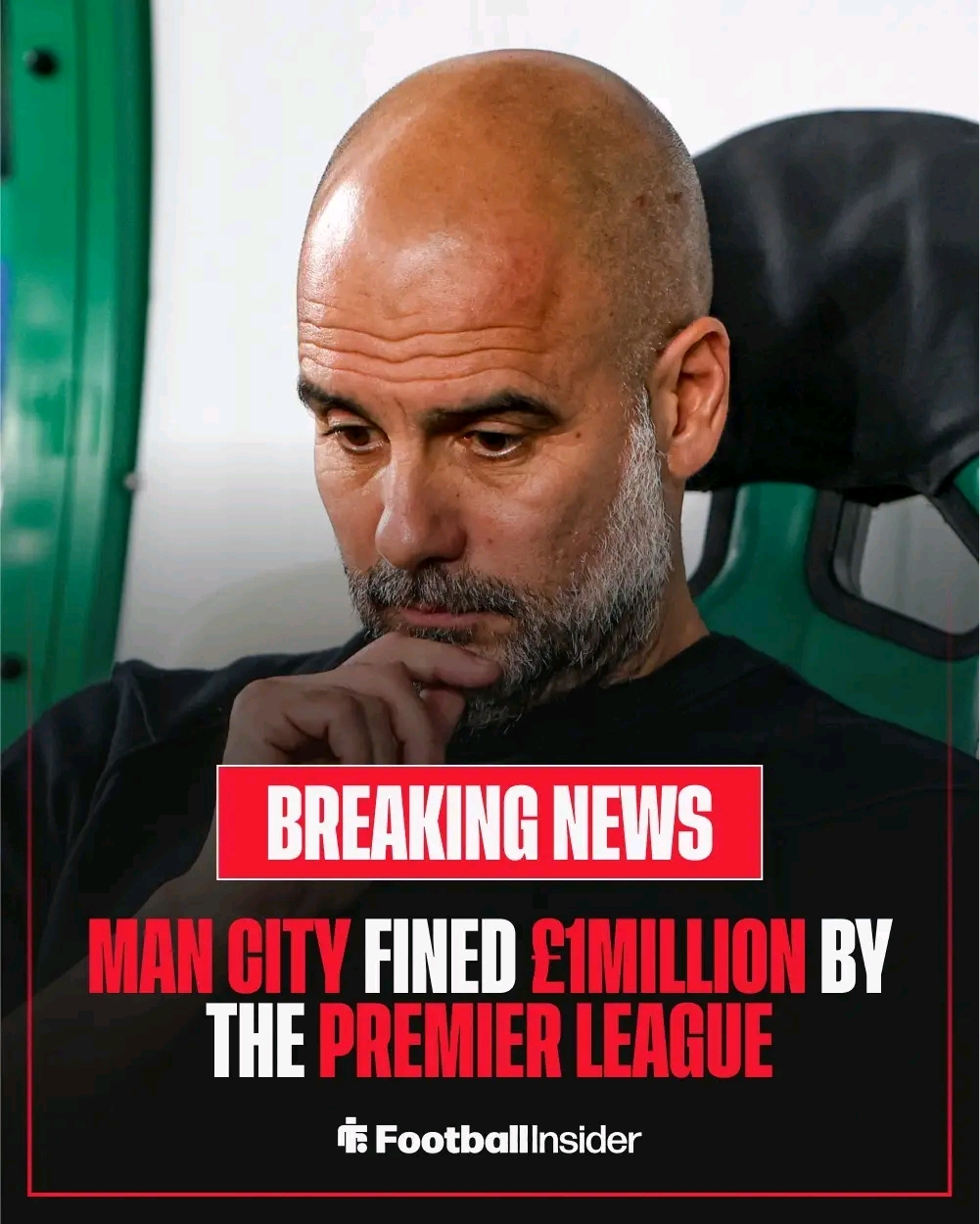Manchester City Hit with £1 Million Fine: A Comprehensive Analysis of Premier League Sanctions and Global Football Ambitions

The world of professional football operates under strict regulations designed to maintain the highest standards of competition and broadcasting excellence. Recently, Manchester City, one of England’s most successful clubs, found themselves on the receiving end of a significant financial penalty from the Premier League. This incident highlights the intricate balance between maintaining professional standards and the commercial realities of modern football.
In late June 2025, Manchester City were slapped with a hefty fine exceeding £1 million by the Premier League for multiple breaches of kick-off and restart regulations. This penalty, totaling precisely £1.08 million, represents more than just a financial sanction—it underscores the Premier League’s commitment to maintaining the professional standards that have made English football a global phenomenon.
The violations that led to this substantial fine were related to delayed kick-offs and restarts across nine separate matches during the previous season. These incidents occurred between October and February, suggesting a pattern of timing issues that the Premier League could not overlook. The most egregious example of these delays lasted two minutes and 24 seconds before the resumption of the Manchester derby in December, a high-profile match that would have been watched by millions of viewers worldwide.
The Premier League’s decision to impose such a significant fine reflects the organization’s understanding of how even seemingly minor delays can impact the broader football ecosystem. In modern football, where television broadcasting schedules are meticulously planned and global audiences expect seamless viewing experiences, punctuality has become a crucial element of professional operations.
These timing violations may appear minor to casual observers, but they represent a more significant challenge in the contemporary football landscape. The Premier League, as one of the world’s most-watched sporting competitions, operates under intense scrutiny from broadcasters, sponsors, and fans who expect matches to begin and restart precisely on schedule.
This recent fine is not Manchester City’s first encounter with Premier League sanctions for timing violations. The club was previously fined more than £2 million during the previous summer for 22 breaches of kick-off and restart rules. This pattern of violations suggests systemic issues within the club’s match-day operations that the Premier League has been monitoring closely.s
The escalation in both the frequency and severity of these penalties indicates that the Premier League’s tolerance for timing violations has decreased significantly. The organization appears to be taking a zero-tolerance approach to what might have been considered minor infractions in the past.
The fact that Manchester City has been repeatedly sanctioned for similar violations raises questions about the club’s internal processes and procedures. For a club with such sophisticated operational capabilities and resources, these repeated timing issues suggest that there may be underlying organizational challenges that need to be addressed.
The Premier League’s official statement regarding these sanctions provides insight into the organization’s priorities and expectations. According to the league, rules relating to kick-offs and restarts serve multiple crucial functions in maintaining the competition’s integrity and commercial viability.
First and foremost, these regulations help ensure that the organization of the competition maintains the highest possible professional standards. In an era where football has become a global business worth billions of dollars, maintaining consistent professional standards is essential for preserving the league’s reputation and commercial value.
The timing rules also provide certainty to fans and participating clubs. Football supporters, whether attending matches in person or watching from around the world, expect matches to begin and restart according to published schedules. This predictability is particularly important for international audiences who may be planning their viewing around specific kick-off times.
From a broadcasting perspective, these regulations ensure that every Premier League match is kept to schedule. Television networks pay enormous sums for broadcasting rights, and they expect the league to deliver content according to agreed-upon timetables. Delays can have cascading effects on programming schedules, potentially impacting advertising revenue and viewer satisfaction.
Manchester City’s response to these sanctions demonstrates the club’s recognition of the seriousness of the violations. The club has accepted the penalties and issued formal apologies for the breaches, indicating their understanding of the importance of these regulations.
The club has been given 14 days to make payment from the execution of the sanction agreement, a relatively short timeframe that emphasizes the Premier League’s expectation of prompt compliance. For a club of Manchester City’s financial resources, the monetary penalty itself is unlikely to cause significant hardship, but the reputational impact and the precedent it sets are more significant concerns.
The acceptance of these penalties without apparent dispute suggests that Manchester City recognizes the legitimacy of the Premier League’s concerns and the importance of maintaining professional standards. This approach may help the club avoid more severe penalties in the future while demonstrating their commitment to compliance.
Despite these domestic challenges, Manchester City continues to pursue their global ambitions through participation in international competitions. The club’s involvement in the revamped Club World Cup provides an interesting contrast to their Premier League sanctions, highlighting the complexity of managing a modern football club’s multiple commitments.
The Club World Cup, now expanded to a 32-team tournament, represents FIFA’s vision for globalizing football at the highest level. Manchester City’s participation in this competition demonstrates their status as one of the world’s elite clubs, capable of competing against the best teams from every continent.
Manchester City’s chief executive, Ferran Soriano, has expressed significant enthusiasm for the tournament’s new format, viewing it as a crucial step in football’s continued globalization. His comments reveal the club’s strategic thinking about balancing their local roots with their global ambitions.
Soriano’s perspective on the Club World Cup reflects a broader trend in modern football, where successful clubs must navigate the tension between maintaining their connection to local communities and pursuing global commercial opportunities. This balance is particularly challenging for clubs like Manchester City, who have deep historical roots in their local community but also ambitious global aspirations.
Manchester City’s performance in the Club World Cup has been impressive, beginning their campaign with a convincing 2-0 victory over Morocco’s Wydad Athletic Club. This match, played in Philadelphia, marked the beginning of their defense of the title they won two years ago in the competition’s previous seven-club format.
The victory was secured through goals from Phil Foden and Jérémy Doku, two players who represent different aspects of Manchester City’s player development strategy. Foden, a product of the club’s youth academy, embodies their commitment to developing local talent, while Doku represents their ability to attract and develop international stars.
Manager Pep Guardiola used the match to give debuts to two of his newest acquisitions, Tijjani Reijnders and Rayan Cherki. These debuts are part of a broader squad renewal process that has seen the club make eight new signings across recent transfer windows.
The integration of new players into Guardiola’s system is always a closely watched process, as the Spanish manager is known for his meticulous approach to player development and tactical implementation. The Club World Cup provides an ideal platform for testing new combinations and giving newer players valuable experience in high-pressure situations.
Ferran Soriano’s comments about the club’s recent transfer activity provide insight into Manchester City’s long-term strategic planning. The club’s approach to squad renewal reflects careful consideration of both immediate needs and future sustainability.
The decision to make minimal signings in one summer while making eight new acquisitions in the following windows demonstrates a strategic approach to squad management. This pattern suggests that the club’s leadership takes a long-term view of squad development, rather than making reactive decisions based on short-term pressures.
Soriano’s emphasis on multi-annual planning highlights the complexity of managing a modern football club’s roster. With players having different contract lengths, varying development trajectories, and diverse market values, successful squad management requires careful coordination across multiple seasons.
The club’s ability to maintain stability while implementing significant changes speaks to the quality of their organizational structure and leadership. The fact that Pep Guardiola has committed to a ten-year tenure with the club provides a foundation for long-term planning that many clubs lack
One of the most interesting aspects of Manchester City’s current situation is how they balance their local identity with their global ambitions. Soriano’s comments about being “local and relevant and faithful to the history of the club and the fans” while also being “global” reflects a challenge facing many successful football clubs.
This balance is particularly complex for Manchester City, given their transformation from a club with primarily local support to one with global recognition and commercial reach. The club’s leadership appears to understand that maintaining their connection to their local community is essential for preserving their authentic identity.
The concept of “beautiful football” that Soriano mentions is central to Manchester City’s global brand. Under Guardiola’s leadership, the club has developed a distinctive style of play that is both effective and aesthetically pleasing. This approach to football serves both competitive and commercial purposes, helping the club succeed on the pitch while building their global fanbase.
Manchester City’s approach to player development reflects their broader strategic vision. The club’s investment in both youth development and high-profile signings demonstrates their commitment to building a sustainable competitive advantage.
The mention of Kevin De Bruyne’s decade-long service to the club illustrates the benefits of successful player retention. De Bruyne’s case demonstrates how the club can develop long-term relationships with key players while maintaining competitive standards.
The integration of new players like Reijnders and Cherki into the squad represents the ongoing nature of squad development. These players bring different skills and perspectives that can enhance the team’s overall capabilities while providing depth and competition for places.
The financial penalty imposed by the Premier League, while significant, must be viewed in the context of Manchester City’s overall financial position. For a club with substantial revenue streams from various sources, the £1.08 million fine represents a manageable expense, though the precedent it sets is more concerning.
The repeated nature of these violations suggests that the club may need to invest in improved operational systems and procedures to prevent future penalties. This investment in infrastructure and processes is essential for maintaining the club’s reputation and avoiding more severe sanctions.
The Club World Cup provides an opportunity for Manchester City to demonstrate their capabilities on a global stage while potentially generating additional revenue through prize money, sponsorship exposure, and increased commercial opportunichallenges
Looking forward, Manchester City faces several challenges in maintaining their position as one of the world’s elite football clubs. The Premier League’s increasing focus on operational compliance means that the club must ensure their match-day procedures meet the highest standards.
The club’s global ambitions, as demonstrated through their participation in the Club World Cup, require careful management of player workloads and travel schedules. Balancing domestic and international commitments while maintaining competitive standards across all competitions is a complex logistical challenge.
The ongoing squad renewal process presents both opportunities and risks. While new signings can enhance the team’s capabilities, integrating multiple new players simultaneously requires careful management to maintain team cohesion and performance standards.
Manchester City’s recent £1 million fine from the Premier League represents more than just a financial penalty—it reflects the evolving standards and expectations in professional football. The club’s response to these sanctions, combined with their continued success in international competitions, demonstrates the complex challenges facing modern football clubs.
The balance between maintaining local identity and pursuing global ambitions remains a central challenge for Manchester City and similar clubs. Their ability to navigate these challenges while maintaining competitive success will determine their long-term position in the global football landscape.
The Premier League’s strict enforcement of operational standards serves as a reminder that success in modern football requires excellence in all aspects of club operations, not just on-field performance. For Manchester City, addressing these operational challenges while continuing to compete at the highest level will be essential for their continued success.
As the club continues to evolve and adapt to the changing landscape of professional football, their ability to learn from these experiences and implement necessary improvements will be crucial. The combination of significant financial resources, world-class facilities, and experienced leadership provides a strong foundation for addressing these challenges and maintaining their position among the world’s elite football clubs.
The story of Manchester City’s recent fine and their ongoing global ambitions illustrates the complexity of modern football club management. Success requires not only talented players and skilled coaches but also robust operational systems and strategic vision. As the club moves forward, their ability to integrate these various elements will determine their continued success both domestically and internationally.















